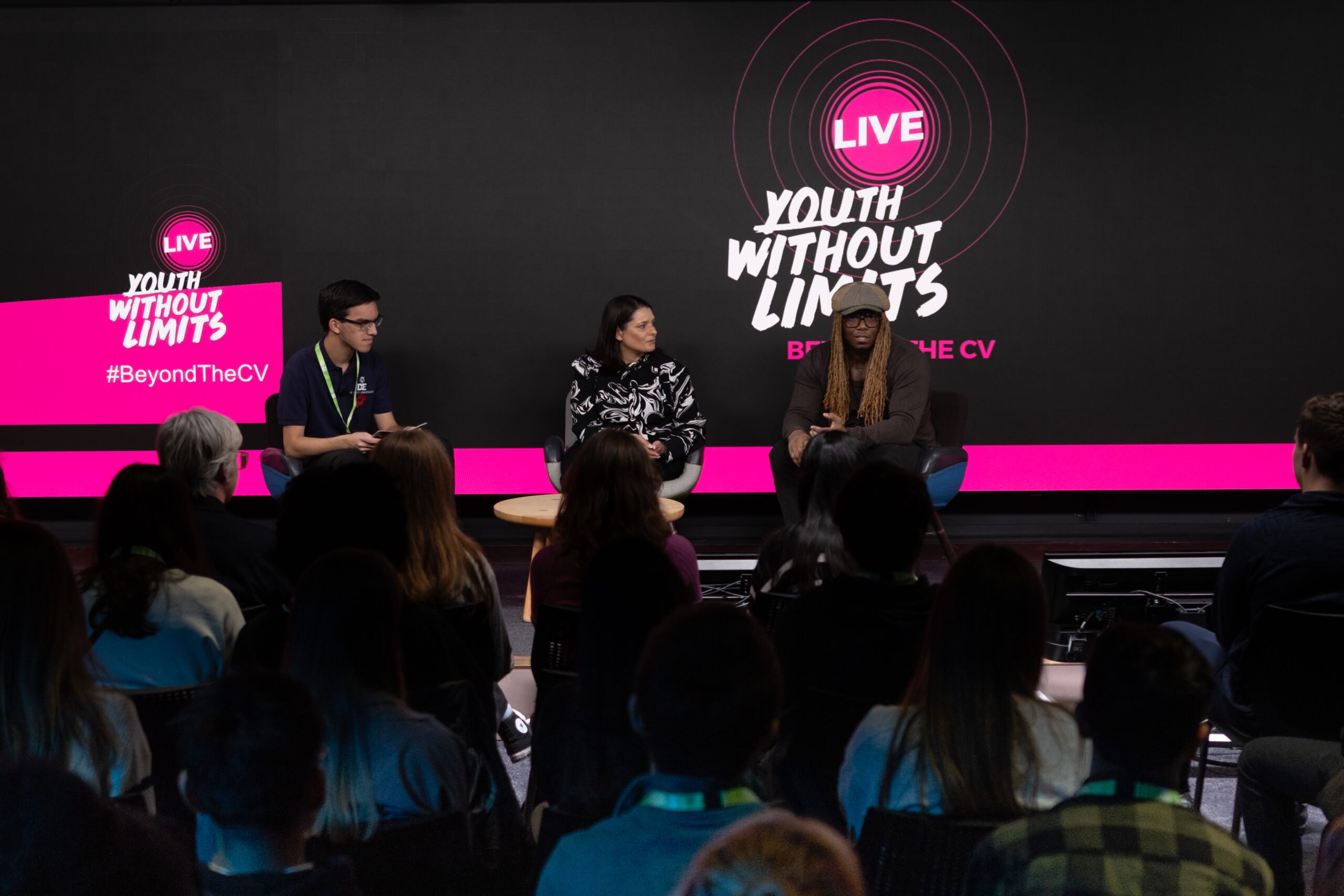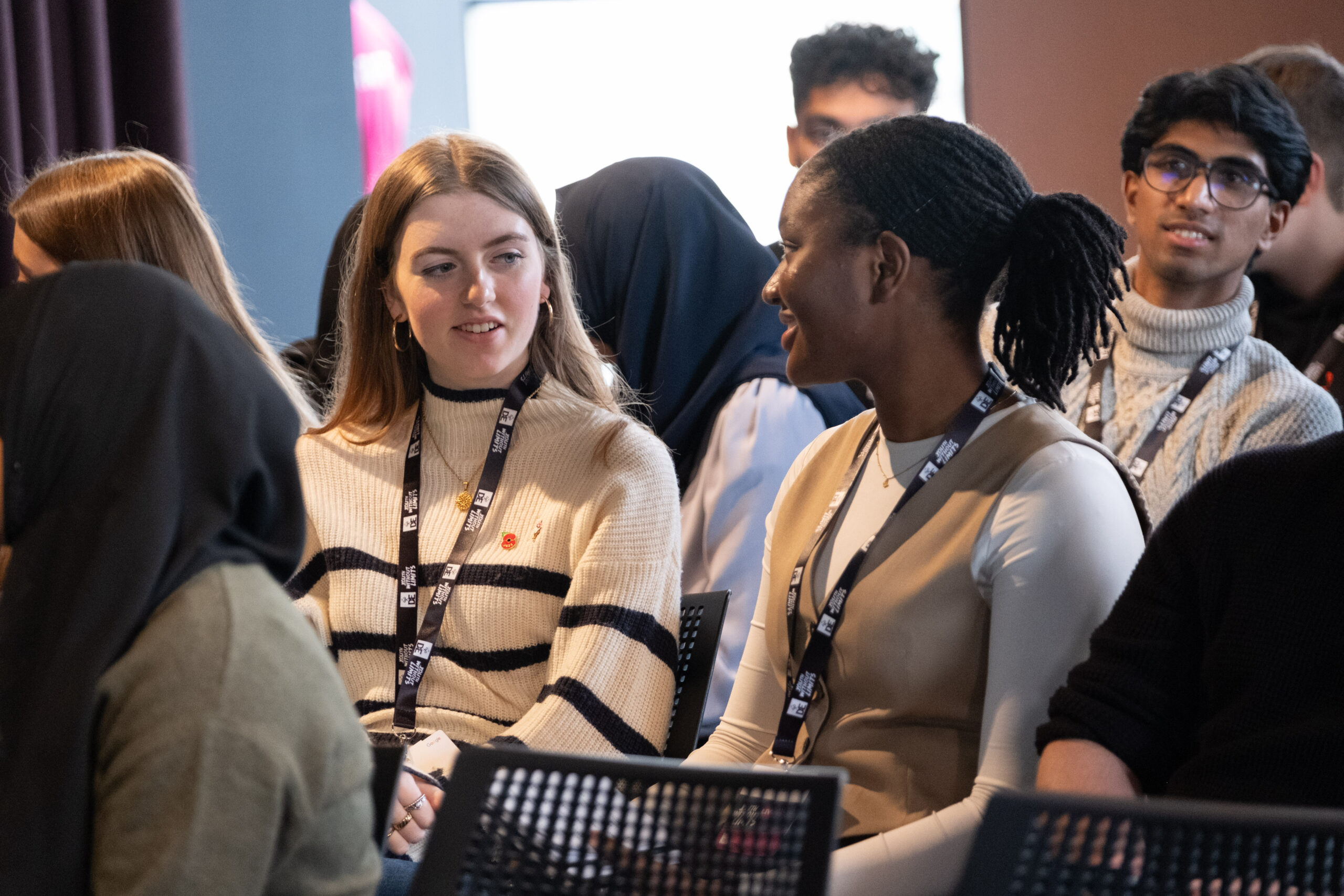“Ok Google: How do I navigate my career?”

Stepping into the world of careers can be exciting but also a bit daunting. As a young person starting to think about your future you may, understandably, have a lot of questions.
We searched the internet for the most burning career questions and what better place to get these questions answered than at our Youth Without Limits LIVE event held at Google’s London office, where we were joined by top employers and industry experts.
You asked, they answered.
1. What advice can you give to someone who is nervous about a job interview?
“My number one tip would to always be confident! Go in knowing your skills and who you are, and make sure that you agree with the company’s values and vision. This is much as an interview for you as it is for them.”
– Natasha, Stem outreach and development specialist at UKPN
“Prepare! Think about what you’re going for and compare your CV to that role, don’t worry about writing notes – take those noes in with you. That demonstrates to an interviewer that you’ve prepared, that’s a good thing and it will help you if you’re nervous. So if you get stuck and falter don’t be afraid to stop and say ‘hold on a minute, can I just check my notes?’ Every interviewer will respect that and will know; one – you’re hungry to get it right, and two – you’re prepared which means it’s important to you and that will be important to them.”
– Karen Hopley, People Director at Amey
2. What is your top piece of career advice?
“Always be yourself. I always pride myself on making friends as I am, getting to know my colleagues and that way we always have a good team dynamic which produces great work.”
– Natasha Paramasamy, Stem outreach and development specialist at UKPN
“Speak to people, use Google (no pun intended!) I have a mentor and I’m 40 years old, you’re always learning.”
– Leon Whitley, Community Engagement Manager at London Fire Brigade
3. How do I know what career is right for me?
“It’s really important that you differentiate yourself from the other candidates that you’re up against. Often people think that they must do that through qualifications and experience but actually what’s important is your attitude, your work ethic and your ability to overcome challenge and DofE’s a really good way of demonstrating your work ethic. It’s tough so talk about how tough it was and how you dug deep to get through all those different challenges that you faced.”
“Think about part-time jobs and where you have overcome difficult things and worked with difficult customers, because we recruit for attitude then train for potential. You can have people that come along with great qualifications but if they’ve got the wrong attitude you can’t train them, but if you’ve got someone who perhaps hasn’t got those qualifications or experience – if they’ve got the right attitude, we can train them. So think about your attitude, work ethic and experiences you’ve had and how you can get those across at interviews.”
– Karen Hopley, People Director at Amey

4. How can I find my career goals?
“Don’t let money be your main motivator because that will only sustain you to a point. Ask yourself: What does it look like for you to enjoy the work you’re doing? What is the most important thing to you when looking for a job? Or the top three most important things? When thinking about what you want from your career, look at the things that you already enjoy doing.”
– Google Digital Garage team
5. How can my DofE Award help me to develop my career?
“During your DofE, one of the most important skills you learn is teamwork, which is a really good skill to be transferred to the fire service. Time keeping and treating people with respect are also two great transferable skills from your DofE Award to the workplace.”
– Leon Whitley, Community Engagement Manager at London Fire Brigade
“DofE is a way of broadening your CV and going beyond it. It’s something that you can’t learn in books or a classroom, it really gives you an edge over other candidates. When talking about your DofE, like in an interview, think about the stories; maybe you were lost in the rain during your expedition? How did you overcome that challenge? If I see DofE on a CV I already know I’ve got someone that can overcome challenges and is resilient.”
– Karen Hopley, People Director at Amey
6. What message do you have for young people entering the world of work?
“I really want you to focus on who you are. We spend so much time looking at everybody else and thinking ‘what have they done?’ You’ve got to remember, you’re the one who is the special one in this conversation, because you should look in the mirror and say ‘what have I got? What have I got to contribute? How can I add value?’ Focus on you, your thumbprint is unique for a reason.”
– Tim Campbell MBE




